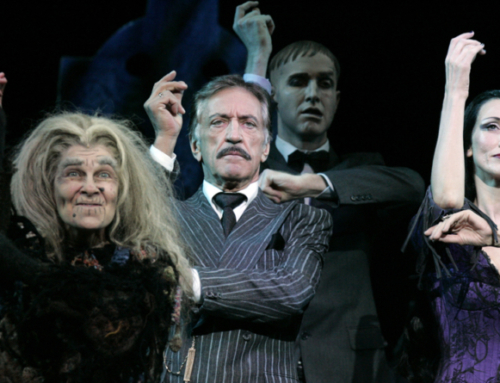Repetition gets a bad rap. Sure, as kids we might be cajoled into practicing an instrument or a sport by injunctions like “practice makes perfect” and the ever-confusing “peat, peat, and re-peat” (or is it “pete, pete, and re-peat”?), but as adults we quickly tire of the same thing over and over again. Once is enough, and twice may be altogether too much; as Laurie Anderson’s O Superman proves, “repetitive” is synonymous with “boring.” Yet for all that, Tom Cruise’s unexpectedly fascinating new movie Edge of Tomorrow helpfully points out why it’s worth taking another look (and another, and another) at repetition.
Edge of Tomorrow itself is a haphazard jumble of repetitions; the plot involves a weird time-loop where Cruise’s character keeps repeating the same disastrous day of man-vs-alien battle over and over again, returning to the previous morning every time he dies. There are countless other repetitions at the meta level, considering the film as it relates to reality: the critical landing whereby humans attempt to re-take continental Europe from its domination by an evil alien species occurs at Normandy, and is launched from England; a major previous battle takes place at Verdun; the whole plot is a pastiche of Groundhog Day; certain action scenes seem lifted from director Doug Liman’s Bourne Identity; the main non-Tom Cruise character unexpectedly wields a weapon from Final Fantasy VII; the epic conclusion is remarkably akin to Pacific Rim; and the premise of the film is taken from a Japanese science fiction novella called, in the original Japanese, All You Need Is Kill, which is itself based on repetitive clichés cobbled together from pulp war novels and first-person-shooter video games.
But so far, so standard; back in 1993, David Foster Wallace was already pointing out in his essay “E Unibus Pluram” that one of the defining features of contemporary literature and entertainment was its all-consuming capacity for self- and meta-referentiality, resulting in a seemingly endless series of nested repetitions. So what’s particular about Edge of Tomorrow?
Through two hours of guns, explosions, guts both alien and human, and more Tom Cruise than you can shake a stick at, the Edge of Tomorrow somehow manages to get to the heart of what repetition is all about: change. Because Cruise’s character has experienced all of these events before, nothing happens exactly the same way twice; everything is different because he is different, changed by his memory of the previous iterations of the event. Likewise, the film’s meta-repetitions are meant to be noticed, so that the viewer will realize that he is in Cruise’s situation vis-à-vis reality. The film’s basic argument is that even when things recur, nothing can ever truly repeat; the one who experiences the various iterations of one thing is aware of them all, and is changed by each of them.
Real repetition is the fruitful ground from which creativity and newness spring, as it lets the mind grasp discrete events in a wider context that enables them to be analyzed more deeply. Repetition is only boring when it undermines its true nature, insulting the listener or viewer’s intelligence by imagining that he doesn’t remember the previous occurrences of the theme.
This unexpected connection between repetition and change is the reason why the Church has always held that the liturgy is the privileged moment of worship, and one that forms the pattern for the rest of our lives. The words, gestures, sounds, sights, and symbols of the liturgy are largely the same day after day, and the one sacrifice of Calvary that is re-presented on the altar is precisely the same everywhere and every moment the Eucharist is celebrated. Yet the liturgy never truly repeats; the ever-changing mystical Body of Christ, the Church, comes afresh to the altar each time the unchanging substantial Body of Christ is received in the Eucharist. The liturgy expects believers to attend to the unchanging mystery that they are experiencing, and in so doing the liturgy weaves into the past, present, and future of those who worship, propelling them by grace to be changed, to grow, to be transformed ever more perfectly in the likeness of God.
So sure, Edge of Tomorrow is no more original or unique than any other summer blockbuster movie; but precisely by embracing repetition, it points unexpectedly to the one needful thing: the ever-new adoration of the unchanging God.
✠
Image: Lincoln Harrison, Startrail







